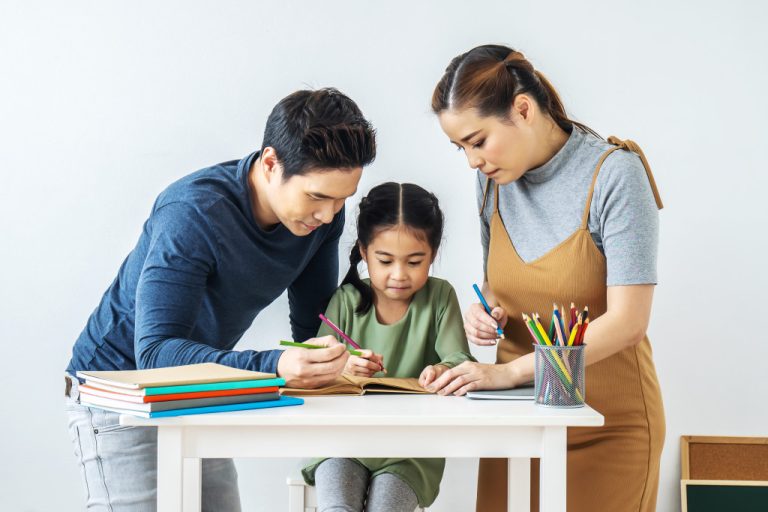- Parents must be aware of their kids’ development and provide them with tools to become responsible adults.
- Financial literacy is an essential skill that includes budgeting, money management, setting financial goals, and investing.
- Life skills such as cooking, cleaning, time management, home maintenance, and conflict resolution are essential for children’s independent living.
- Safety awareness is fundamental for kids’ safety and survival; this includes stranger danger, online security, and basic survival skills like swimming or first aid.
- With parental guidance and support, children can be equipped with the necessary knowledge to lead successful lives in the future.
Parents have the responsibility to help their kids to become responsible adults. Parents must be aware of their kids’ development and allow them to acquire the necessary skills to flourish.
Studies show that parental guidance is essential for children’s development as it provides them with a secure base and helps them develop confidence. Research has found that when parents are engaged and responsive, it can help children be more successful in school, have better language and social skills, and make more positive lifestyle choices later in life.
Providing emotional support is also crucial – something which is especially important during early childhood. Parents should play an active role in supporting their children emotionally by recognizing their feelings and validating them. This could include having conversations about complex topics like death or failure or providing feedback on how they can work through challenging situations effectively.
However, one of the best things parents can do is teach kids all the essential skills in life. Here are a few areas where parents should focus:
Financial Literacy

Financial literacy is an essential skill that children need to learn early in life. As they grow, they need to understand budgeting and money management, setting financial goals, and the importance of investing.
For parents, teaching financial literacy to their kids can be as simple as talking about money and modeling good financial habits. For example, parents could create a family budget board where everyone can track income and expenses. This allows children to see how important it is to control spending and manage finances wisely. It also helps them understand money’s value before they start making decisions on their own.
Parents can also encourage children to set financial goals from a young age. They should help them identify short-term objectives like saving for holidays or a new phone and longer-term objectives such as going to college or starting their own business. Parents should explain the concept of saving for future needs by discussing the compound effect of investments over time and helping them develop a plan for reaching their goals.
Additionally, parents should ensure kids understand basic concepts such as debt vs. savings. Teaching them why it’s essential to pay off credit card debt quickly or why they should not borrow more can help them avoid common mistakes when managing their finances in adulthood. They should also be educated about the basics of investing, but complicated concepts should be discussed in more detail when they are older.
Life Skills

Life skills are fundamental abilities that children need to learn to live independently and successfully. They are vital to survival, especially when children begin to explore the world and make decisions on their own. Here are a few skills to prioritize and how parents can help:
Cooking and Cleaning
Cooking and cleaning are practical life skills that can help children become independent. Parents should provide opportunities to practice these skills from an early age. For example, they can involve their kids in the meal preparation and give them simple household chores like washing dishes or taking out the trash.
Time Management
Time management involves planning and making the most of available resources. To teach this skill, parents need to instill a sense of urgency in their kids by encouraging them to set schedules and stick to them. Parents should also show them how to prioritize tasks and break down complex goals into small steps.
Home Maintenance
Home maintenance is a skill that involves basic repairs and maintenance of the home. Parents should teach their kids the basics, such as changing light bulbs, checking smoke detectors, and unclogging drains. They can move on to more significant projects, like fixing a leaky faucet or painting the walls if they are old enough. They can also be in charge of inventory equipment, especially for large metal fasteners with multiple purposes in home DIY. Soon, they will understand how to do those projects themselves.
Conflict Resolution and Communication
Conflict resolution and communication skills are essential for successful relationships. When children understand how to communicate effectively, they can avoid misunderstandings and build better relationships with family members, friends, and even strangers. Conflicts can arise in any situation, and teaching kids how to resolve disputes objectively can help them become better problem solvers.
Safety Awareness
Safety awareness is another essential skill that kids need to learn. Parents should ensure their children understand the basics, such as how to behave in public spaces, how to cross the street safely, and what to do in an emergency. It’s also essential for them to develop basic survival skills like swimming and first aid to protect themselves in dangerous situations.
Safety lessons must start with the basics, such as teaching kids about stranger danger and how to call for help in an emergency. Parents should also discuss online safety regularly, including the potential risks of social media, online scams, and cyberbullying.
Final Thoughts
By providing guidance and support while teaching these essential skills, parents can equip children with the necessary tools to become responsible adults. Not only will this ensure their safety, but it will also help them lead successful lives as they grow up.











